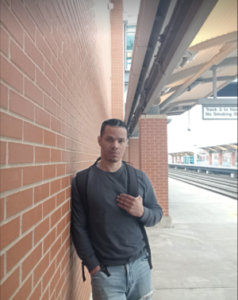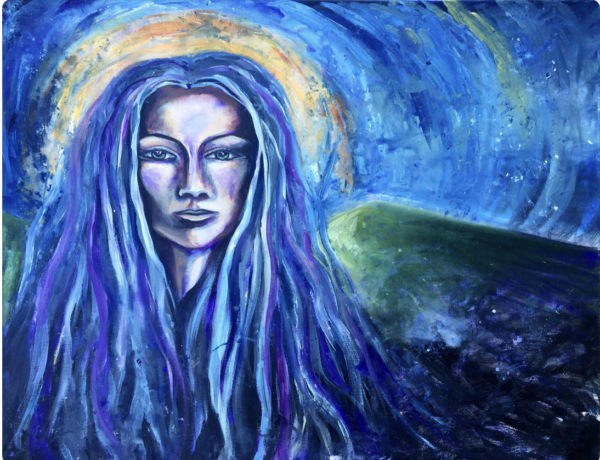“How many, on the contrary, are fed with evil influences, street associations, and are thus poisoned at every pore, until their being is thoroughly contaminated through neglect, public and private, and, when not orphans, even parental neglect also; and then after having increased our county rates, enlarged our prisons, and built union workhouses (with respect to morals and training for the young, I say pest-houses) we add ragged schools. We allow them to become contaminated, and when that is accomplished, we go to work to undo what has been done. If this does not succeed we punish by law the poor neglected beings for taking the poisons we really offered them! Oh, rare consistency in this boasted age of light, and science, and learning!”
Samuel Wilderspin, The Infant System (1852)
I never had a childhood. I never knew about the child until I was charged as an adult. I never had an understanding of what a child is supposed to be. I was beaten, used as whatever others wanted to do with me, pulled in to and out of my self without a reference point. I was told to “shut up,” “die,” “cry louder.” I was called a bastard. Filius nullius – a nothing, a nobody. A son of a bitch. Those who gave their love by bruising me knew what I would mistake for affection. In order to love me, they abused me of my humanity and disabused me of any sense of childhood. I never thought that I was sick until I couldn’t understand anything. I always thought that pain was abnormal, not because it hurt, but because I couldn’t make sense of its infliction.
No. I never had a childhood. Or more exactly, I never knew I was a child, until I was arrested. Until the conversation of what to do with me began. When I began to pick my jury at the age of fifteen, my reference points were staggered. I demanded that my lawyer consult with me because I was an adult. It was my trial, and as an adult, I had a right to opine on who did or didn’t qualify. And so whenever he crossed examined a potential juror, he grudgingly walked over every time to ask me what I thought. The young woman who was dismissed by the court did not know what she was talking about. How could she not be impartial to a fifteen year old facing 120 years in prison? I was a man. An adult. What child was she shocked by when the prosecutor explained the facts of the case and the potential sentence? The whole juridical process seemed to be plotted and projected from too many different reference points. It presented a different kind of abuse I couldn’t identify, and this further buried the sense of the child within me.
I plead guilty. I fell asleep inside of a bullpen, and forgot my name when I woke up to an officer’s commands. I fell into depression and didn’t bathe or eat for three days. Nobody came to check on the child. And so, as an adult, I decided not to die. I decided to take responsibility – as an adult. I decided to stop making excuses – as an adult. I decided I would serve my entire 45 year sentence – as an adult.
I never knew myself as a child. I knew some things about it: It shouldn’t cry. It should obey. It should be seen and not heard. It was malitia supplet aetatem – malice supplies the age. But then I found out that it was not just a miniature adult. That it had a twice diminished culpability compared to adults. That it was not capable of appreciating the full consequences of its actions. That it should not be put to death or sentenced to mandatory life without the possibility of parole.
I began to learn about the child from the State’s attempts at reconciling the contradiction of charging children as adults with the consistency that justice demands. I began to see the emergence of the child in the 45 year sentence that was imposed and then legislated into 27 years to parole, then pardoned at 24 years, then further reduced to 23 years – all by different authorities that began trying to… reach the child?
I was able to feel the child stirring within me as I approached my commutation hearing, and then, I felt the sense of a spontaneous abortion as the parole officer asked me why I deserved a commutation. The question made me realize that if the child was to be recognized, it would have to be through a cringing reservation that would admit nothing, and this result required the production of the sick child.
The Board of Pardons and Parole drafted its commutation policy based on scientific findings that the brain is not fully developed until the age of 25. Its policy is what made me deserving of a commutation, but its Munchausen syndrome by proxy created a process and posed questions that made me undeserving. In order for the State to justify its discipline and punishment of the child, and to evade the fear that the child poses in its intellect, emerging independence, and humanity, the child that the State needs must remain sick by proxy. In order to avoid admitting that it is trying to correct an injustice to the child, the State questions the adult, after decades of incarceration, as if it is the adult that is at fault. For no one would admit that an injustice was done to the child. Such an admission would be to victimize twice those whom the State swore to defend, and not the child, who is deemed defenseless enough to deprive it of rights in order to protect it against adults. The child: the only citizen to be denied rights in order to protect it and granted rights in order to violate it.
I was asked, “If released, what would you need from us?” I, the adult, after 24 years in prison, responded with “nothing” for the child. For it was the child that had to fight – against the very institution charged with its correction – for every bit of responsibility and accountability it acquired. The child went beyond the low standards and expectations set by its parens patriae, demanding the logic, justice and consistency that it grew to understand was needed beyond the prevention of recidivating. Upon these demands, they relegated the child to its delinquency and charged it with the crime of incorrigibility for not holding true to its criminal base. When it insisted on its health, it was deemed cynical by virtue of its insistence. “You mean to tell me,” the questions persisted, “that you’ve been locked up for 24 years, and you don’t need anything from us?” And there it was, the question that suggested I should be sick and would be made sicker by refusing to acknowledge my dependency. The implications of all of my accomplishments posed a threat in the tone of a question, causing me to hedge my dignity, self-worth, and reason.
And when I thought that the process could not become more irrational, they smiled and laughed while interviewing a life that was in their hands. They smiled and laughed during a hearing that consisted of a child who had almost taken the life of an innocent person, and all while victims of violent crimes were watching. They may say, “Are we not human that we can’t find humor in the most tragic moments?” And I may say, “So am I, but your life is not in my hands. And if I were to laugh, my humanity would be that last thing that would be granted to me.” The questions not only assumed that I should not be proactive, but paradoxically, they assumed I was a child that required the adult to answer. Or perhaps, vice versa. It was a transposition that set the child up against the adult, and the adult against the child to confirm its disease. I could not escape their contradiction of charging me as an adult, and consequently, I remained a concern when my answers brought the child in and out of focus. “I am very impressed” I was told. But then “You’re trying to do too much” would follow.
Power does not admit of reason, nor does it have any use for it, so nothing could prepare them for assessing my person. And because of this, nothing could prepare me for showing it to them. I was beyond their frame of reference and hence, beneath a qualified form of freedom. I was expected to obtain my freedom through an interrogational process that required me to strip myself of the very virtues that made freedom significant. They wanted me free, but without any other conviction than that of my crime. They wanted to restore my citizenship, but without any more appreciation for life than they were capable of possessing. The State will not admit its condition, and so the sick child must persist in every legislative act, in every hearing, in every form of relief they grant it. A relief that is the Trojan horse for the continual injustices against the child. A relief that soothes the adult but does not reach the virus that is the child, who must die a thousand deaths to show how irresponsible and corrupt they are; who has already died a million deaths at the hands of a modern cruelty, a sophisticated Frankenstein, and a prophylactic justice.
“The child has no defense in any case except the kindness and conscience of the adult,” wrote George Bernard Shaw, “and the adult had better not forget this, for it involves a heavy responsibility.” But they have forgotten. The position that society has taken towards the child is similar to that of Dostoevsky when he wrote, “I once wronged a man and I never forgave him for it.” The “why” of the child is at the forefront of every rule and law, and adults detest this, but in doing so, they generate contempt for themselves. For adults know that the child is defenseless, and so, the only way to reconcile that defenselessness with the punishment they inflict is by blaming the child for forcing them to mistreat and betray it. This is unforgivable to society, so it prefers to mitigate its guilt by silencing the child in so many ways, not understanding the moral currents that ensue from such silencing. To give a child the impression that certain things should not be said, is to condemn it to the idea that certain things should not be acknowledged. But to do this leads it to think that truth and facts are to be feared, and to do this is to make it distrust its own mind, and to do that is to make reality a threat to it. The adults have already adopted this policy, and since the child is the one that poses a threat in its natural desire to understand and potentially dismantle such a policy, it becomes the reality that breeds contempt. The threat of the child lies in the fact that it forces adults to reckon with the challenge that a mind can’t be forced to understand, and this is humanity in its bare nudity. A child then is a mind that is born outside of its body. Let the “why” of the child not accept dictates without understanding them, and it is deemed a delinquent. Let it challenge authority to test its own hypotheses, and measure the capacity of its autonomy by defiance, and it is forced into a binary that either reflects the best or absorbs the very worst of society. In this sense, the child is symbolic and historically similar to all of those who have been punished or executed by the State for exhausting their humanity. In fact, while absorbing the injustices permeating society when it is born, the child must also embody the stigma of every injustice that preceded it – the sins of its mother and father, the remnants of witch hunts, slavery, and genocide. Whatever history has not been reckoned with lingers in the air, in wait for the very first inhale that invades the child’s cry. A cry that shrieks from unresolved trauma is mistaken for hunger, and a protest that is sent from centuries of inhumanity is brushed away as petulance. A child lives echoing Shaw’s recrimination, “When will we realize that the fact that we can become accustomed to anything, however disgusting at first, makes it necessary for us to examine carefully everything we have become accustomed to?”
Kate Douglass Smith writes, “It is the age of independent criticism. The child problem is merely one phase of the universal problem that confronts society. It seems likely that the rod of reason will have to replace the rod of birch. Parental authority never used to be called into question; neither was the catechism, nor the Bible, nor the minister. How should parents hope to escape the universal interrogation point leveled at everything else? In these days of free speech it is hopeless to suppose that even infants can be muzzled. We revel in our republican virtues; let us accept the vices of those virtues as philosophically as possible.” To keep the child sick, then, is to preserve the delusion that adults can prevent the interrogation of their authority, their whims and contradictions by denying the reality of the child. For as Shaw also writes, “Experienced parents, when children’s rights are preached to them, very naturally ask whether children are to be allowed to do what they like. The best reply is to ask whether adults are to be allowed to do what they like. The two cases are the same.” Until we can understand what it means to answer this question with a resounding “NO!”, we will condemn the child, along with ourselves, to a contempt that brings us progress without dignity. For this is the modern cruelty, progress without dignity.






No Comments